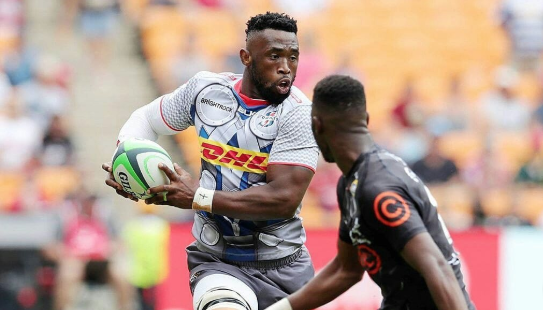Approval for the Rugby Championship to go ahead has heightened the importance of SA Rugby successfully kick-starting a revised domestic competition, writes CRAIG LEWIS.
Let’s celebrate the good news.
All of South Africa’s professional teams have returned to non-contact training this week, and there has even been word from some franchises that players were able to set personal-best times as they went through fitness testing.
It’s a welcome return to some sense of ‘normality’ for South Africa’s players as they have been able to regroup in small numbers to begin the process of getting back up to speed after a period of lockdown.
In fairness, the work done by the franchises even during a difficult period of isolation appears to have been beyond reproach, with fitness and gym equipment, as well as tailor-made training programmes, offered up for players to complete at home.
However, the real challenge will come in terms of now going through three to four weeks of strength-and-conditioning training before hopefully receiving approval to begin contact training again.
This is where it becomes tricky as even the best-laid plans could be scuppered if South Africa’s coronavirus numbers continue to rise and then inevitably prevent the green light from government when it comes to restarting contact training.
That will effectively be an essential three-to-four-week period when South Africa’s players need to once again get used to taking contact, and go through team training in normal groups.
To put this in perspective, even if this were able to take place from mid-August – in what is surely a best-case scenario – that would mark five months since the players have last taken part in any meaningful rugby or contact training.
The everlasting hope is that a new-look Currie Cup will be able to kick off in September, allowing for a full-strength domestic competition to get under way before a select group of over 30 players would be withdrawn to begin preparation with the Springboks for the revised Rugby Championship.
In this regard, in what was surely up there with the best rugby news of 2020, it was confirmed on Wednesday that World Rugby has provided approval for the Rugby Championship to be hosted in full in a single country (set to be New Zealand) between 7 November and 12 December.
READ: Rugby Champs gets go-ahead
In this context, it’s crucial for the Springbok players to be able to get through some competitive action and then head into a national squad, before facing the prospect of an early arrival and quarantine period in New Zealand.
Already, South Africa (and of course Argentina, too) will be playing catch-up, with New Zealand and Australia’s domestic competitions already well under way.
In fairness, All Blacks players should be miles ahead in terms of wrapping up their 10-week Aotearoa competition in mid-August before having several weeks to recover from any bumps and bruises, followed by preparation for the Rugby Championship.
Yet, all that rather pales in importance compared to the need for South Africa to be able to successfully return to action, and then look forward to international competition.
The possibility of watching the world champion Springboks defend the Rugby Championship title in front of full crowds – albeit in New Zealand – should be food for any rugby lover’s soul.
There’s plenty to still to unpack over the next few weeks and months, but SA Rugby CEO Jurie Roux did provide an update that a return-to-play proposal would be submitted by the end of this week.
‘We are busy negotiating with government on two scenarios,’ Roux explained. ‘One outside a bio-bubble and one in a bio-bubble. It is now where that bio-bubble will be. Initially, the destination of choice was Johannesburg for various reasons. However, Johannesburg is becoming a real hotspot now in terms of Covid-19. Although, all districts in our country have been declared hotspots.
‘We have to possibly reconsider and have a second alternative that we can provide to government. We intend on providing that information by the end of the week and hopefully getting an answer next week.
‘Our return-to-play date is still the last weekend of August or first weekend of September or, at the latest, the second weekend of September, which would still allow us to play a domestic competition of sorts as well as a junior competition.
‘It is essential for us to get the guys back on the pitch because we need enough game time before we can embark on any international competition,’ Roux added.





